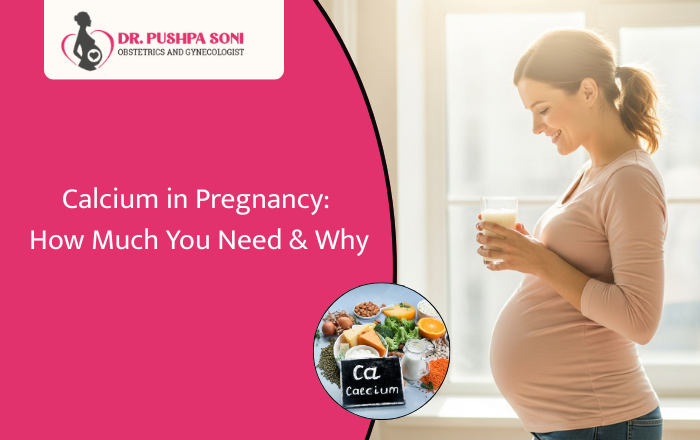When you’re pregnant, your body is doing a million things at once—growing a new life, shifting hormones, supporting new organs. And through all of that, one mineral quietly becomes a big deal: calcium.
Most people think calcium is only about strong bones, but in pregnancy, it does a lot more. It helps form your baby’s bones and teeth, supports muscle function, and even helps your own body stay balanced through all the changes.
Let’s break down why calcium matters during pregnancy, how much you really need, where to get it from, and what signs to look out for if you’re not getting enough.
Why Calcium Is Crucial During Pregnancy
– For Your Baby’s Bone and Teeth Development
In the second and third trimester, your baby’s bones begin to grow rapidly. That process pulls calcium directly from your body. If you don’t have enough, your baby will still take what they need—but it’ll come at a cost to you.
Teeth, bones, muscles, and even the baby’s heart need calcium to form properly. So making sure your intake is steady helps both of you.
– To Protect Your Own Bones
Your body naturally prioritizes your baby’s needs. If your diet is low in calcium, it will start pulling calcium from your bones. Over time, that can weaken your bones and raise your risk of bone loss or even osteoporosis later in life.
How Much Calcium Do You Actually Need?
– Recommended Daily Intake
According to most health guidelines, pregnant women need 1,000 mg of calcium per day. If you’re under 18, the need goes up to 1,300 mg per day, since your body is still growing too.
If you’re not eating enough dairy or calcium-rich foods—or if you’re vegan or lactose intolerant—you might fall short without realizing it.
– Is Too Much Calcium a Problem?
Yes, taking way more than you need (usually over 2,500 mg/day) can lead to problems like kidney stones or poor absorption of other nutrients like iron and zinc.
The key is balance—not overloading with supplements unless your doctor advises it.
Best Sources of Calcium During Pregnancy
Calcium-Rich Foods (Both Veg and Non-Veg)
Here’s where to get your calcium from food:
– Dairy options:
- Milk
- Yogurt (curd)
- Cheese
- Paneer
– Non-dairy and plant-based options:
- Ragi (finger millet)
- Sesame seeds (til)
- Almonds
- Tofu
- Spinach
- Amaranth leaves
- Fortified plant-based milk (like soy or almond milk)
– Non-veg options:
- Sardines (with bones)
- Salmon (with bones)
- Eggs (for small amounts)
Should You Take a Calcium Supplement?
Sometimes, food isn’t enough—especially if you have food allergies, nausea, or dietary restrictions.
Supplements can help, but timing matters.
- Take calcium after meals, not with iron tablets.
- Calcium carbonate is best absorbed with food, while calcium citrate can be taken anytime.
Always check with your doctor before starting any supplement, especially if you’re already taking prenatal vitamins.
Signs You Might Be Low on Calcium
Pregnancy can mask a lot of deficiencies, but here are some clues your calcium might be too low:
- Frequent leg cramps
- Tooth pain or weak enamel
- Brittle nails
- Tingling in hands and feet
- Feeling tired or irritable for no clear reason
If you’re feeling off, it’s always better to check your levels than ignore the signs.
FAQ
1. When should I start taking calcium during pregnancy?
Usually from the second trimester onwards. But if you have a low-calcium diet, your doctor might suggest starting earlier.
2. Can I take calcium and iron together?
Not ideal. Calcium can block iron absorption. Take them at different times—one in the morning and one in the evening.
3. What if I’m lactose intolerant?
You can still get calcium from sesame seeds, almonds, tofu, fortified plant milk, and certain leafy greens. Supplements may help too.
Need Help Figuring It Out?
Pregnancy is different for everyone. Your body’s needs depend on your diet, health history, and stage of pregnancy. If you’re feeling unsure about what you should be eating—or how to get enough calcium—it helps to speak to someone who can guide you clearly.
We recommend Dr. Pushpa Soni, a well-known pregnancy care doctor in Kalyani Nagar. She’s helped many women understand what their body needs during pregnancy, including how to manage calcium and other nutrients without guesswork.
Your body is doing a big job—make sure it has the support it needs.

